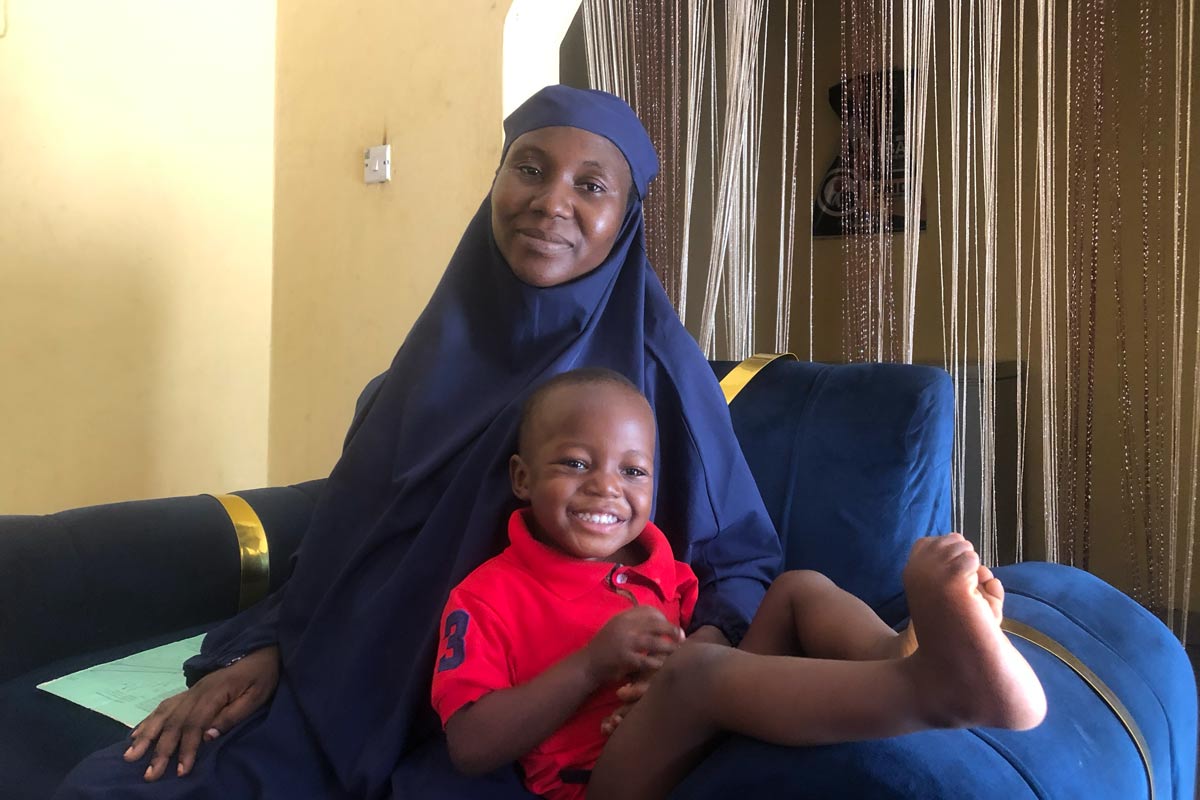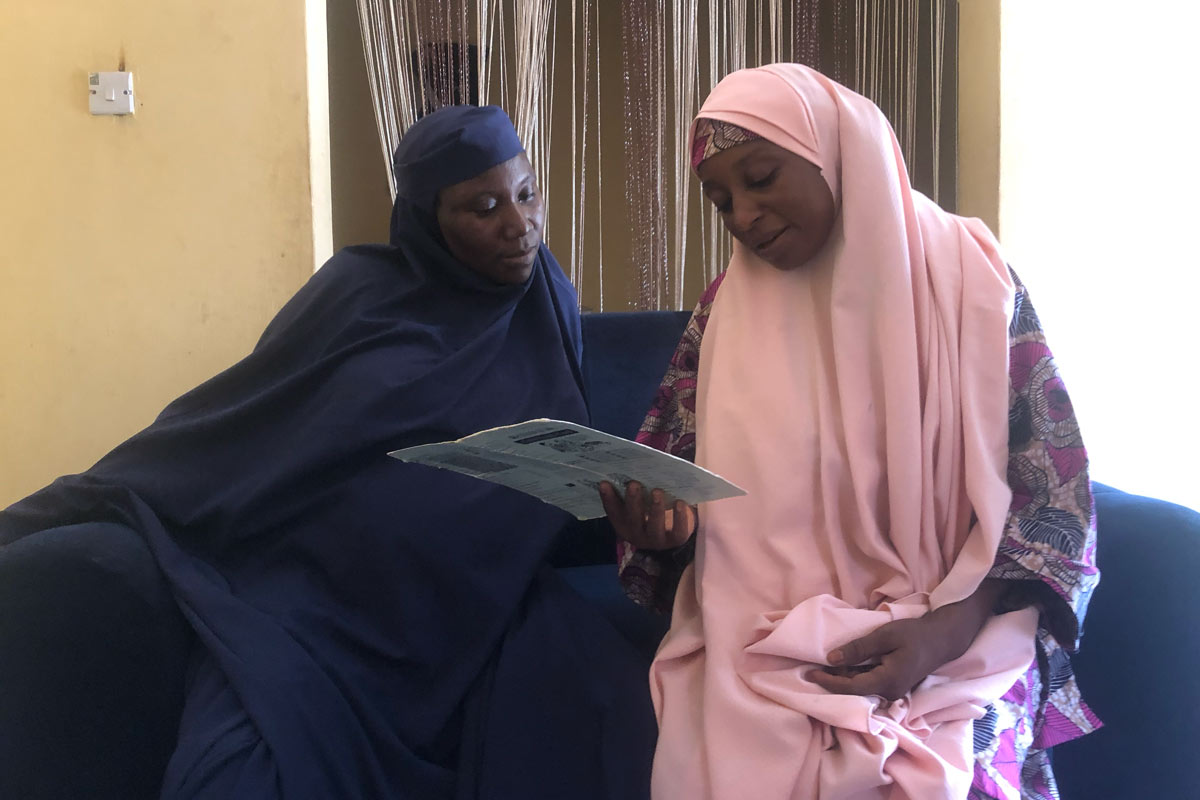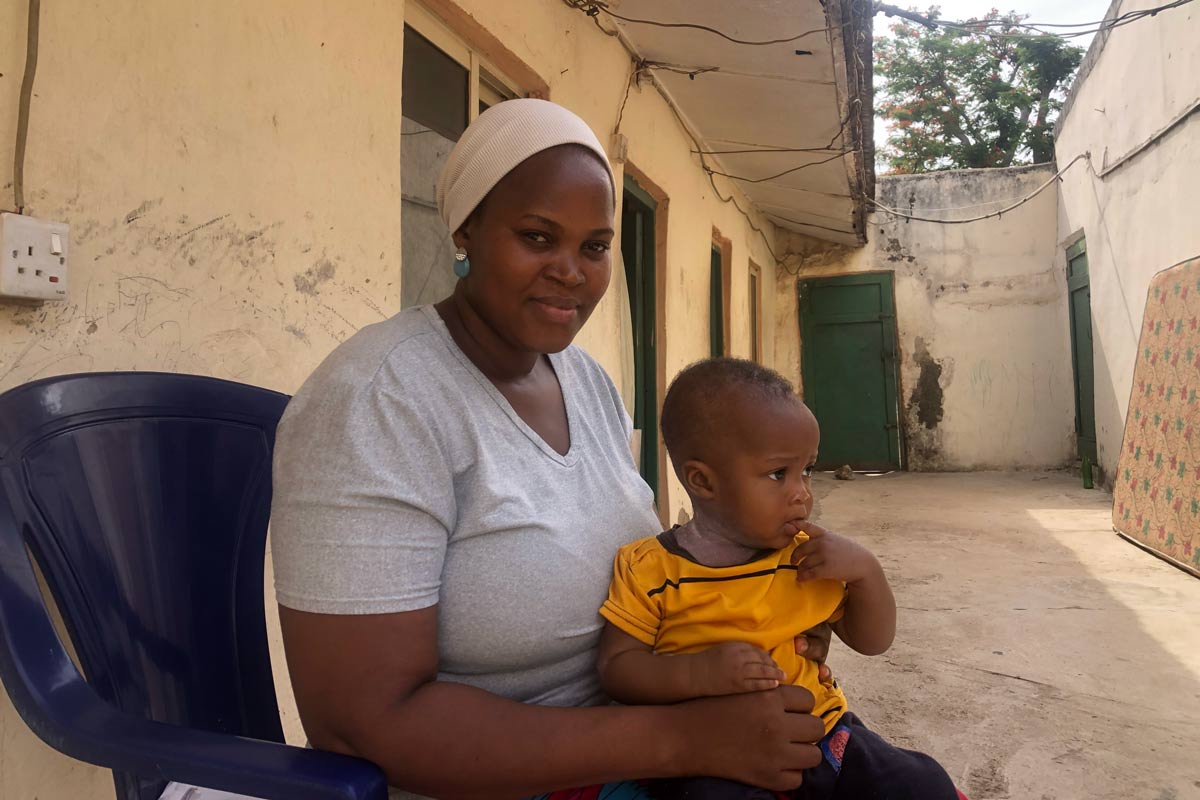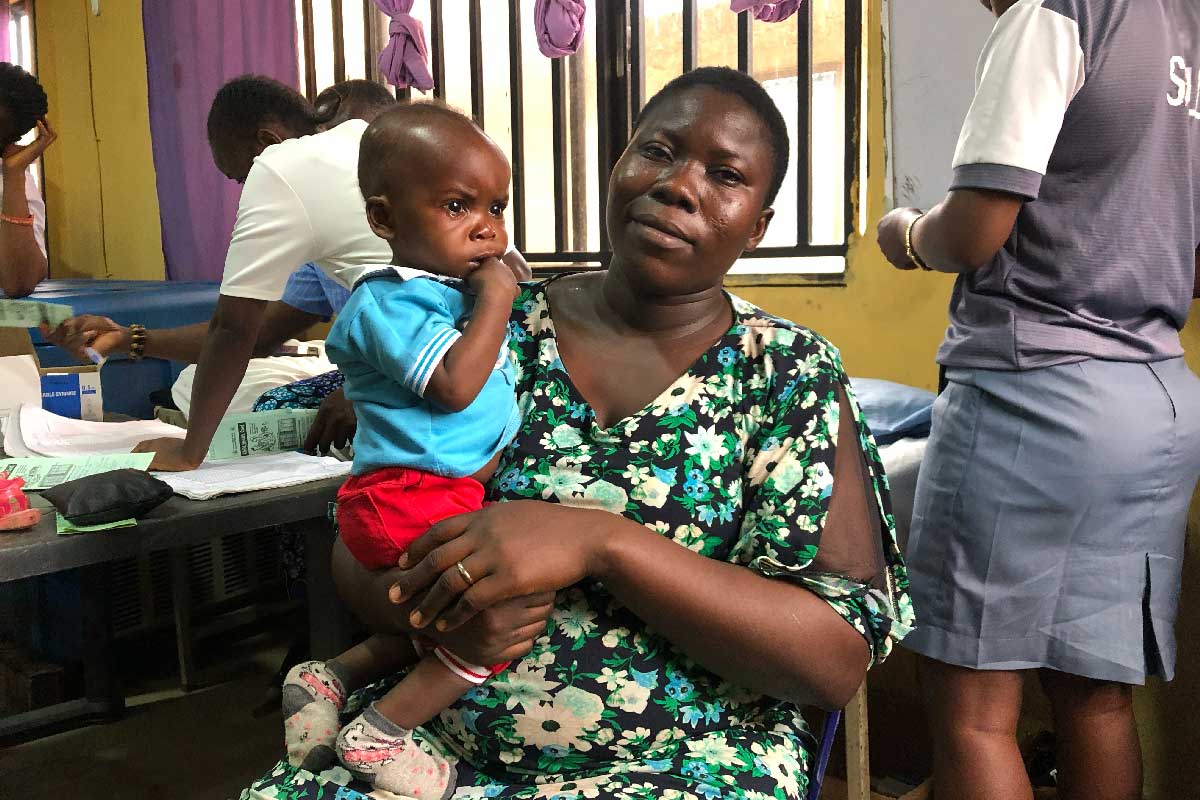Going door to door to beat diphtheria in Nigeria
Since the pandemic caused immunisation rates to plunge, diphtheria cases have spiked in Nigeria. Health workers like Maryam Umar are racing to bring the population’s immune defences back up to par.
- 18 June 2025
- 6 min read
- by Ekpali Saint

On a hot Saturday afternoon in May, Maryam Umar left her small drug store in Bosso Low-Cost, a locality in Nigeria’s Niger state, and headed out into the community. “Visiting [homes] to create awareness of diphtheria disease and to vaccinate children is part of my duty,” she explained.
Umar pushed open a small red gate and was greeted by familiar faces. “They are children I have administered vaccines to,” she said. A few steps on, Umar called out their mothers, requesting the children’s immunisation cards. After reviewing the cards, Umar explained to the mothers the ways diphtheria could sicken their children, and the dangers of not taking the vaccine.
Diphtheria is caused by a bacterium called Corynebacterium diphtheriae, which targets the mucous membranes of the nose, throat and, sometimes, the skin. The disease spreads through infected respiratory droplets, physical contact with an infected individual, or contaminated objects, explained Iyare Osarhiemen, public health physician at Alex Ekwueme Federal University Teaching Hospital, Abakaliki. It’s frequently deadly: even with medical care, one in ten people with respiratory diphtheria is expected to die. Without intervention, as many as half succumb.
But the infection is preventable through vaccination, and the vaccine is available publicly through Nigeria’s routine immunisation programme. While the country has made gains on basic vaccination coverage over the years, movement restrictions and lockdowns during the COVID-19 pandemic, which made it difficult for health workers to reach people, especially those in far-flung communities with vaccines, caused significant and dangerous declines in vaccination rates. Nationwide coverage with the basic diphtheria, tetanus and pertussis-containing vaccine (DTP) dipped from 66% in 2019 to 62% in 2020, at which level it remains.
In pockets of the country, protection levels are far lower still, raising the risk of disease spread. In Niger State, just 43.8% of children had received the necessary three doses of the diphtheria vaccine when the 2023–2024 Nigeria Demographic and Health Survey was conducted, meaning the northern state significantly lagged the national average.
Not coincidentally, over the past three years, Nigeria has been battling its worst diphtheria outbreak in decades. The epidemic, which began in May 2022 and peaked in 2023, had sickened a suspected 44,000 people and caused 1,376 deaths by May 2025. Eleven of those suspected cases occurred in Niger State.

News of those suspected cases prompted quick action in her area, Umar said. “We enlightened [the people] on preventive measures and also [encouraged] them to come for preventive care. The reason for this is to ensure that the rate at which people are infected is reduced,” she added.
To many health workers and parents, diphtheria had become an unfamiliar threat. Between 2003 and 2017, Nigeria recorded no cases of the disease at all, according to World Health Organization data. But decades of suboptimal vaccination coverage, followed by increased vulnerability after COVID-19, meant large populations of susceptible children had accumulated in many places. All that was needed for a major outbreak to begin was a spark: a single infection reaching a group of unimmunised children would set off a wildfire chain-reaction.
One household at a time
The fire is still smouldering, so in communities across the country, including Bosso Low-Cost, health workers like Umar are defending against renewed spread of the disease by redoubling their vaccination efforts. A lot of that has to do with simply making it easier for parents to stay on track.
Every Monday and Thursday, Umar provides routine immunisation services at Bosso Low-Cost Primary Healthcare Centre, where she is based as a community health worker. During the immunisation session, the health facility collects mothers’ information such as name, phone number, and address, principally to help them stay on track with their children’s vaccines. But even with reminders, some families still fall off schedule. Protection against diphtheria requires a full primary series of the vaccine – three doses, spaced weeks apart – so falling off schedule can spell mortal danger.
To get as many children as possible protected, Umar and her colleagues now take vaccines closer to people in their communities every week during outreach, going house-to-house with their vaccine boxes.
Umar said her team visits a minimum of five households at every outreach and in a week, they vaccinate at least 20 children at home. Two-year-old Suleiman Jibrin is one of the children Umar vaccinated. Namana Umar, his mother, says she feels happy knowing her only child has received all three vaccine doses.
“When I see my boy, I feel happy because my child is fully vaccinated. He has been healthy since he took the vaccines [and] I am satisfied,” she said. “This vaccine is for his health so that he can be protected from diphtheria and other diseases.”
Like Jibril’s mother, Happy Nambala, who just had her seven-month-old child vaccinated, said she was confident that vaccines contribute significantly to a child’s health. “Vaccines build children’s immune system; I have never doubted this,” said Nambala, who has had her three children fully vaccinated. “I take health information during outreach very seriously because it has to do with the health of my children.”

Tackling hesitancy
But pockets of resistance to vaccination – often traceable to circulating rumours or traditional beliefs about health – remain, and in those places, efforts to boost vaccination coverage can prove frustrating.
Community health worker Karima Muhammad blames this attitude on lack of awareness and explains that in an effort to tackle that, Niger state outreach workers have made a policy of always showing mothers visual resources, like posters, during visits, to more clearly explain how the disease manifests and how the vaccines work.
“We explain the signs and symptoms to them and we tell them it’s not a spiritual problem,” Hajiya Rabi Yusuf, the director of primary healthcare in Niger State’s Chanchaga local government area, told VaccinesWork. “We explain in their local dialect.”
Have you read?
And in cases where mothers still aren’t convinced, Yusuf said they deploy a “rapid response team”, which might include the local imam, pastor, youth leader, ward health development committee, women leader, security agent and health worker.
“If we have such non-compliance, we go in a team to speak with the person,” she said. “This strategy has helped to deal with diphtheria cases.”
Osarhiemen, the public health physician, adds that besides poor compliance with routine immunisation, the insecurity in the north is also limiting vaccination efforts.
Luckily enough for the families of Bosso, they have Umar, who has taken community engagement and vaccination as a personal, as well as professional, mission. Her reason is simple: “I feel bad when there is mortality due to some [preventable] diseases like diphtheria,” she said.






